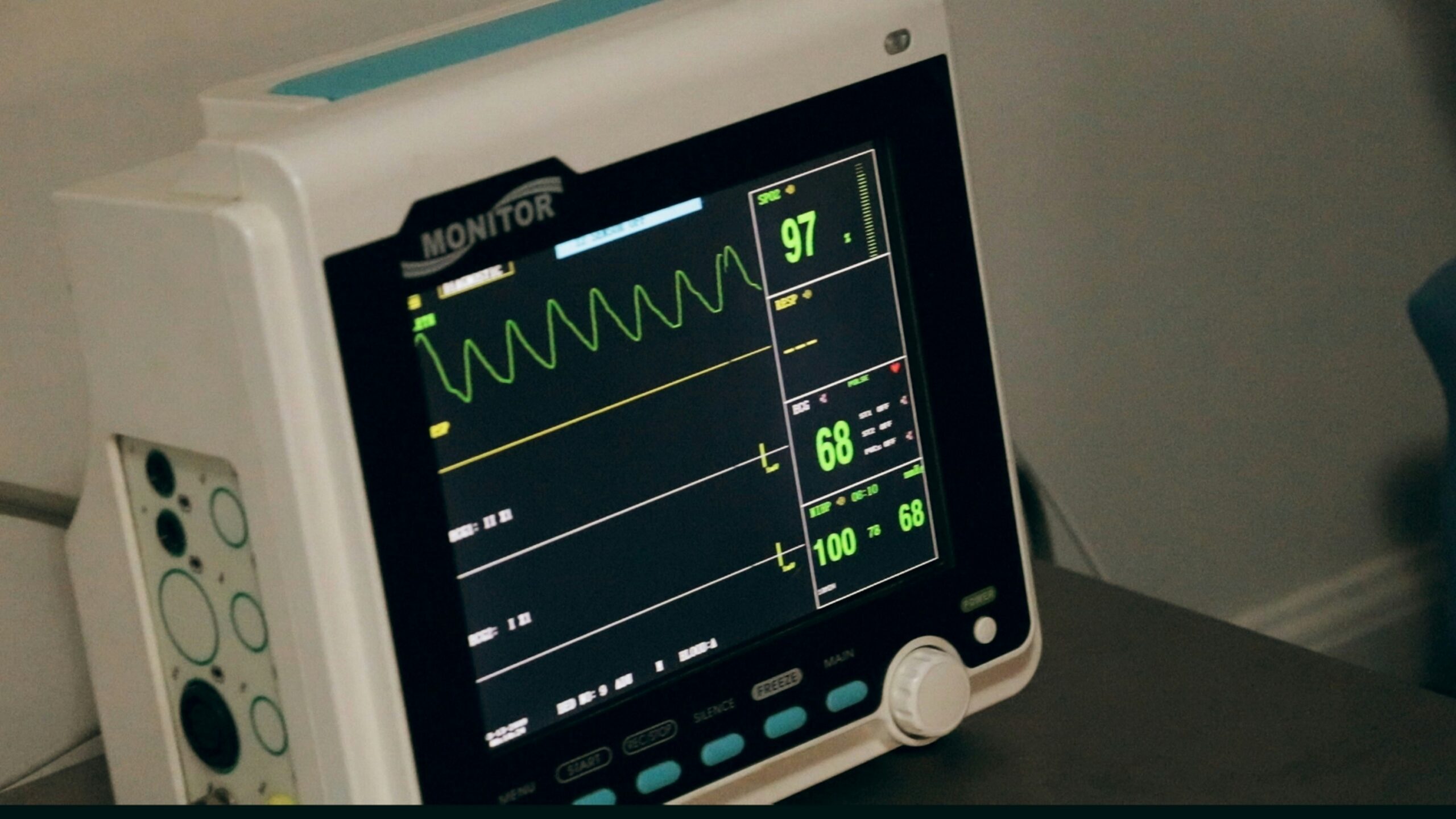Why do many seniors overlook preventative care, potentially risking their health? This article explores the vital role of preventative services in healthy aging and how Medicare supports these efforts. We’ll cover essential screenings for seniors and tips for maximizing your Medicare benefits. By understanding and using preventative care options, you can better manage conditions like diabetes and improve your overall lifestyle. Learn how to navigate Medicare’s preventative care offerings, including tests like fecal occult blood screening, to afford your health under the Affordable Care Act.
Key Takeaways
- Medicare covers a wide range of preventative services to support healthy aging for seniors.
- Regular screenings and check-ups can detect health issues early, leading to better outcomes.
- Preventative care helps seniors maintain independence and improves overall quality of life.
- Effective communication with healthcare providers is crucial for maximizing Medicare preventative care benefits.
- Building a support network and utilizing resources can help seniors overcome barriers to preventative care.
Understanding Preventative Care and Its Role in Aging

Preventative care is vital for healthy aging, especially as Medicare beneficiaries face increased health risks. This section explores how early detection, lifestyle choices, and regular check-ups with physicians can improve health outcomes for older adults. It also discusses the importance of kidney health, managing back pain, and how patients can work with healthcare providers to prevent age-related issues.
Defining Preventative Care for Older Adults
Preventative care for older adults involves proactive health measures to maintain wellness and detect potential issues early. This approach includes regular check-ups, screenings, immunizations, and the zoster vaccine for shingles prevention and pneumonia shots. It also encompasses lifestyle modifications like weight loss programs and physical therapy to improve mobility and reduce the risk of falls.
Medicare beneficiaries can access various preventative services, including cardiology screenings to monitor heart health. These services aim to identify and address health concerns before they become serious, potentially reducing the need for more intensive treatments later. By focusing on prevention, older adults can work with their healthcare providers to develop personalized strategies for maintaining their health and independence as they age.
Early Detection’s Impact on Health Outcomes
Early detection plays a crucial role in managing health risks for older adults. By identifying potential issues before they progress, Medicare beneficiaries can reduce their risk of developing severe conditions like heart failure or disability. Regular screenings and check-ups enable healthcare providers to catch early signs of illness, allowing for timely interventions that can prevent or mitigate health complications.
Preventative care measures, such as vaccinations against common viruses, help protect older adults from potentially severe health strains. Medicare covers various preventive services, including screenings for cardiovascular disease, diabetes, and certain cancers. These services empower beneficiaries to take proactive steps in maintaining their health, potentially reducing the need for more intensive and costly treatments in the future.
Aging and the Increasing Need for Preventative Measures
As individuals age, their risk for various health conditions increases, making preventative care more crucial. Medicare beneficiaries face higher chances of developing prediabetes, respiratory diseases, and aortic aneurysms. Regular screenings and check-ups help detect these issues early, allowing for timely interventions and better health outcomes.
Preventative measures become especially important in addressing age-related concerns such as chronic pain and the effects of long-term tobacco smoking. Medicare covers a range of preventative services tailored to older adults’ needs, including screenings for lung cancer and counseling for tobacco cessation. These services aim to improve quality of life and reduce the risk of serious health complications as beneficiaries age.
Lifestyle Choices That Promote Healthy Aging
Healthy aging involves making informed lifestyle choices that support overall well-being. Medicare beneficiaries can benefit from weight management programs and regular ultrasounds for medical diagnosis. These preventative measures help identify potential health issues early, allowing for timely interventions and improved outcomes in senior care.
Insurance coverage through Medicare often includes preventative services that encourage healthy lifestyle choices. Beneficiaries should consult their healthcare providers to develop personalized plans addressing their needs. These plans may include dietary recommendations, exercise routines, and mental health strategies to promote healthy aging:
Collaborating With Healthcare Providers for Preventative Care
Collaborating with healthcare providers is essential for Medicare beneficiaries to establish a baseline for their health and address potential issues early. Regular check-ups allow doctors to monitor for conditions like aneurysms and chronic conditions, ensuring timely interventions. Beneficiaries should discuss their health history and concerns with their providers to develop personalized preventative care plans.
Healthcare providers can guide Medicare patients in accessing appropriate preventative services, such as the pneumococcal conjugate vaccine and mental health screenings. These collaborations help beneficiaries navigate their Medicare benefits effectively, ensuring they receive necessary preventative care to maintain their overall health and well-being as they age.
Medicare Coverage for Preventative Services

Medicare Part B offers comprehensive preventative benefits, including no-cost screenings and vaccinations. This section explores eligibility requirements, how to access covered services, and recent policy updates. It covers essential topics like dyslipidemia management, primary care visits, dementia screenings, and advance care planning, helping beneficiaries make informed decisions about their health.
Overview of Medicare Part B Preventative Benefits
Medicare Part B offers many preventative benefits to support healthy aging. These services include important screenings, vaccinations, and wellness visits that can help detect and prevent chronic conditions like chronic obstructive pulmonary disease. Beneficiaries can receive an annual influenza vaccine and other immunizations to protect against common illnesses that pose more significant risks as people age.
Regular exercise is essential to preventative care, and Medicare Part B covers physical therapy services to help beneficiaries maintain mobility and strength. The program also provides coverage for various health screenings, allowing doctors to monitor patients’ overall health and recommend appropriate doses of medications or lifestyle changes when necessary. These preventative services aim to improve the quality of life and reduce the risk of developing serious health issues:
- Annual wellness visits
- Cardiovascular disease screenings
- Diabetes screenings and self-management training
- Cancer screenings (e.g., mammograms, colonoscopies)
- Bone mass measurements
- Depression screenings
No-Cost Screenings and Vaccinations Available
Medicare offers beneficiaries a range of no-cost screenings and vaccinations, promoting early detection and prevention of various health issues. These services include cervical cancer screenings, mammography, and colonoscopy, which are crucial for detecting potential health problems early. Beneficiaries can also receive blood tests to monitor their health and identify underlying conditions.
To access these services, beneficiaries should discuss their medical history with their healthcare provider during regular check-ups. This allows doctors to recommend appropriate screenings based on individual risk factors and health needs. Medicare covers these preventive services at no cost to the beneficiary, making it easier for older adults to prioritize their health and well-being:
Eligibility Requirements for Preventative Services
Eligibility for Medicare preventative services depends on various factors, including age and specific health conditions. The American Geriatrics Society recommends that older adults take advantage of these services, which include vaccines, cancer screenings, and smoking cessation programs. Medicare beneficiaries typically become eligible for most preventative services at age 65, with some screenings available earlier for those at higher risk.
To access preventative services, beneficiaries must meet specific criteria set by Medicare. For instance, substance abuse screenings are available for those who show signs of potential misuse, while cancer screenings may have specific age or risk factor requirements. Medicare covers these services to promote early detection and prevention of health issues in older adults:
- Annual wellness visits
- Cardiovascular disease screenings
- Diabetes screenings
- Cancer screenings (e.g., mammograms, colonoscopies)
- Vaccines (e.g., flu, pneumococcal)
- Smoking cessation counseling
How to Access Covered Preventative Care
Medicare beneficiaries can access covered preventative care by scheduling regular check-ups with their healthcare providers. During these visits, patients can discuss their health concerns and receive screenings for various conditions, including artery health assessments and strength training recommendations. Quality of life improvements often result from early detection and intervention through these preventative services.
To utilize Medicare’s preventative benefits, beneficiaries should contact their primary care physician or a Medicare-approved provider. These professionals can offer guidance on available screenings and nursing services tailored to individual needs. Medicare covers a range of preventative care options, including annual wellness visits and specialized screenings, to support healthy aging:
Understanding Recent Updates to Medicare Policies
Recent updates to Medicare policies have expanded coverage for preventative services, including sigmoidoscopy exams for colorectal cancer screening. These changes aim to improve early detection of health issues and promote brain health among older adults. Medicare now covers more frequent screenings for carotid artery stenosis, enabling better monitoring of cardiovascular health.
Medicare has also enhanced its coverage for nutrition counseling and preventative exams. Beneficiaries can now access comprehensive wellness visits focusing on overall health assessment and personalized prevention plans. These updates reflect Medicare’s commitment to supporting healthy aging through proactive healthcare measures.
Essential Preventative Screenings for Seniors

Regular screenings are crucial for seniors’ health. Medicare covers essential tests for cancer, heart health, diabetes, and osteoporosis. These screenings help detect issues early, including coronary artery disease and high cholesterol. Bone density tests prevent fractures, while mental health assessments ensure overall well-being. Timely screenings, coupled with lifestyle changes like quitting smoke, can significantly improve seniors’ quality of life.
Importance of Regular Cancer Screenings
Regular cancer screenings are essential for seniors, as early detection improves treatment outcomes. Medicare covers various gender-specific screenings, such as mammograms and prostate exams, to detect cancers that may develop after menopause. These screenings can help identify potential issues before they progress, reducing the risk of complications like bleeding or stroke.
Seniors should discuss risk factors with healthcare providers to determine the appropriate screening schedule. Medicare also covers immunizations that can help prevent certain cancers, such as the HPV vaccine. By prioritizing regular cancer screenings, seniors can take proactive steps to maintain their health and quality of life:
Monitoring Heart Health and Blood Pressure
Regular monitoring of heart health and blood pressure is crucial for seniors to prevent cardiovascular disease. Medicare covers various screenings to assess heart health, including cholesterol tests and blood pressure checks. These screenings help identify risk factors for heart problems and allow healthcare providers to recommend appropriate interventions, such as lifestyle changes or medication.
Seniors should discuss their heart health with their doctors during annual wellness visits. These check-ups can help detect early signs of heart issues and assess the need for further tests or surgery. By prioritizing heart health screenings, seniors can reduce their risk of complications and maintain better overall health, including improved cognition and reduced risk of infection:
Diabetes Screening and Management
Medicare covers regular diabetes screenings for seniors, which are crucial for detecting prediabetes and type 2 diabetes early. These screenings can help prevent complications such as myocardial infarction and cognitive impairment, which often affect older adults with uncontrolled diabetes. Early detection allows for timely interventions, including lifestyle changes and medication management, to maintain blood sugar levels and reduce the risk of diabetes-related health issues.
Diabetes management for seniors involves ongoing monitoring and support to maintain their daily activities. Medicare provides coverage for diabetes self-management training, which helps beneficiaries understand how to manage their condition effectively. This training, combined with regular check-ups and screenings for related conditions like abdominal aortic aneurysms, can significantly improve health outcomes for seniors with diabetes. Proper management also reduces the risk of complications that may affect other preventive care efforts, such as prostate cancer screening.
Bone Density Tests for Osteoporosis Prevention
Bone density tests are essential preventative screenings for seniors at risk of osteoporosis. Medicare covers these tests, which help detect low bone mass before fractures occur. The Centers for Disease Control and Prevention recommends regular bone density screenings for older adults, especially those with risk factors such as low body weight or a history of smoking.
Early detection through bone density tests allows healthcare providers to recommend appropriate therapy and medication to prevent fractures. These screenings can be combined with other preventative care measures, such as blood pressure checks and pap tests, to provide a comprehensive health assessment for seniors. By prioritizing bone health, older adults can maintain mobility and independence, reducing the risk of falls and related complications.
Mental Health Assessments and Resources
Mental health assessments are essential preventative screenings for seniors, helping detect conditions that may affect cognitive function and overall well-being. Medicare covers annual depression screenings, which can identify early signs of mental health issues that may impact a senior’s ability to manage daily activities, including personal hygiene. These assessments also help healthcare providers recommend appropriate interventions, such as therapy or medication, to support mental health and prevent complications.
Regular mental health screenings can also help identify seniors at higher risk for injuries or complications from conditions like influenza or shingles. The Journal of the American Medical Association (JAMA) highlights the importance of integrating mental health care into preventative services for older adults. By addressing mental health concerns early, seniors can maintain better overall health and quality of life:
Navigating Medicare to Maximize Preventative Care

Navigating Medicare effectively can help seniors maximize their preventative care benefits. This section covers scheduling annual wellness visits, communicating with providers about Medicare coverage, and using resources for appointment planning. It also offers tips for reducing out-of-pocket costs and staying informed about benefit changes. These strategies can help seniors access essential services like osteoporosis screenings and fall prevention programs recommended by the United States Preventive Services Task Force.
Scheduling Annual Wellness Visits Effectively
It is crucial for Medicare beneficiaries to schedule annual wellness visits to maximize their preventative care benefits. These visits, recommended by the American Academy of Family Physicians, allow healthcare providers to assess overall health and discuss preventative measures, including vaccinations against streptococcus pneumonia. During these appointments, seniors can receive essential screenings such as electrocardiography to monitor heart health and discuss lifestyle changes like adopting a Mediterranean diet.
To effectively schedule annual wellness visits, Medicare beneficiaries should plan and coordinate with their healthcare providers. It’s essential to prepare a list of health concerns, current medications, and any changes in medical history to make the most of these appointments. Seniors should also inquire about additional preventative services covered by Medicare, ensuring they receive comprehensive care tailored to their individual needs:
- Review current health status and medications
- Discuss recommended screenings and vaccinations
- Assess risk factors for common age-related conditions
- Develop a personalized preventative care plan
- Schedule follow-up appointments for specific health concerns
Communicating With Providers About Medicare Benefits
Effective communication with healthcare providers about Medicare benefits is crucial for seniors to access preventative care services. Patients should discuss their eligibility for screenings, such as lung cancer, and inquire about coverage for vaccinations like whooping cough. By understanding their Medicare benefits, seniors can make informed decisions about their health care and take advantage of services that promote physical activity and maintain a healthy body mass index.
During appointments, seniors should ask their providers about recommended preventative measures and how Medicare covers them. This includes discussing cancer screenings, wellness visits, and lifestyle interventions. By actively engaging in these conversations, patients can ensure they receive comprehensive care that aligns with their Medicare benefits and personal health needs:
- Discuss eligibility for lung cancer screenings
- Inquire about coverage for whooping cough vaccinations
- Ask about services promoting physical activity
- Review recommended cancer screenings
- Explore Medicare coverage for body mass index assessments
Utilizing Medicare Resources for Appointment Planning
Medicare provides valuable resources for seniors to plan their preventative care appointments effectively. These tools help beneficiaries schedule important screenings, such as prostate cancer tests and bone density scans, which are crucial for early detection and prevention of age-related health issues. By using Medicare’s online portals and educational materials, seniors can better understand their coverage for services like postherpetic neuralgia treatment and blood pressure monitoring.
To maximize preventative care benefits, seniors should use Medicare’s appointment planning resources to track their health screenings and vaccinations. These tools can improve adherence to recommended preventative measures and help beneficiaries stay on top of their health needs. By utilizing these resources, seniors can ensure they receive timely care for conditions like high blood pressure and maintain their overall well-being:
Tips for Reducing Out-of-Pocket Expenses
Medicare beneficiaries can reduce out-of-pocket expenses by taking advantage of covered preventative services. These include the pneumococcal polysaccharide and tetanus vaccines, often provided at no cost. Seniors should consult their healthcare providers about the appropriate use of aspirin for cardiovascular health, as this affordable medication may help prevent certain conditions.
To further minimize expenses, beneficiaries with arthritis should explore Medicare’s coverage for physical therapy and pain management services. Regular check-ups and screenings can help detect issues early, potentially reducing long-term healthcare costs. Seniors should also inquire about the pneumococcal vaccine, which may prevent costly hospitalizations due to pneumonia and related complications.
Staying Informed About Benefit Changes and Updates
Staying informed about Medicare benefit changes and updates is crucial for seniors to maximize their preventative care. Regularly reviewing Medicare communications can help beneficiaries learn about new coverage for services like macular degeneration screenings and tetanus vaccinations. These updates may include changes to dietary counseling benefits, which can support overall health and disease prevention efforts.
Medicare beneficiaries should regularly check official Medicare resources for updates on preventative care coverage. This includes staying informed about changes to immune system-boosting services and screenings for age-related diseases. By keeping abreast of these updates, seniors can take full advantage of their benefits and maintain better health outcomes. Key areas to monitor include:
- New preventative screening coverage
- Updates to vaccination schedules and coverage
- Changes in dietary counseling benefits
- Expanded coverage for chronic disease management
- Additions to mental health services
Overcoming Challenges in Accessing Preventative Care

Seniors face various challenges in accessing preventative care, including transportation issues and financial constraints. This section explores strategies to overcome these barriers, focusing on behavior changes, lung health, and alcohol use. It covers transportation options, financial assistance programs, support networks, and health education resources. These approaches help seniors manage their health effectively, including memory care and statin use, while maximizing Medicare benefits.
Addressing Common Barriers Faced by Seniors
Seniors often face barriers when accessing preventative care, including difficulties scheduling appointments with their primary care physician due to limited availability or transportation issues. Chronic pain and stress can also make it challenging for older adults to prioritize regular check-ups and screenings. If left unaddressed, these obstacles can lead to delayed diagnoses and impact life expectancy.
To overcome these barriers, seniors can explore telemedicine options for routine consultations and blood work orders, reducing the need for in-person visits. Additionally, healthcare providers can offer flexible scheduling and home-based services to accommodate seniors with mobility issues or those experiencing chronic pain. By addressing these common challenges, older adults can better engage with preventative care services and potentially improve their overall health outcomes.
Transportation Options for Medical Visits
Transportation options for medical visits are crucial for seniors to access preventive healthcare services. The American Cancer Society recommends regular screenings, which require reliable transportation to healthcare facilities. Medicare beneficiaries can explore various options, including specialized medical transport services, volunteer driver programs, and community shuttles designed for seniors.
For those requiring specialized care, such as palliative care or administration of conjugate vaccines, Medicare may cover non-emergency medical transportation. Seniors should consult their healthcare providers or the local Area Agency on Aging to learn about available transportation resources. These options can help ensure regular attendance at preventive health appointments, improving overall health outcomes:
Financial Assistance Programs and Support
Financial assistance programs are crucial in helping seniors access preventative care services. Medicare beneficiaries facing financial constraints can explore various support options to manage healthcare costs, particularly for conditions like obesity and hypertension. These programs often provide aid for prescription medications, medical equipment, and specialized services that Medicare may not fully cover.
Seniors should consult their healthcare provider or a Medicare counselor to identify suitable financial assistance programs. Many organizations support specific health conditions, helping patients manage chronic diseases and access preventative screenings. Caregivers can also play a vital role in navigating these resources, ensuring that seniors receive the necessary support for their healthcare needs:
Building a Support Network for Health Management
Building a support network is crucial for seniors managing their health and accessing preventative care. This network can include family members, friends, and healthcare professionals who assist with scheduling breast cancer screenings and colorectal cancer tests. A strong support system can help seniors stay on top of their preventative care needs, including managing sleep issues and medication schedules.
Medicare beneficiaries can enhance their support network by joining local senior centers, or support groups focused on specific health conditions. These groups often provide valuable information on drug interactions and new preventative care options. By engaging with peers and professionals, seniors can better navigate their Medicare benefits and overcome challenges in accessing essential preventative services:
- Join local senior centers for health education
- Participate in condition-specific support groups
- Connect with healthcare professionals for personalized advice
- Engage family members in preventative care planning
- Utilize community resources for transportation and assistance
Empowering Yourself Through Health Education
Health education empowers seniors to take control of their preventative care journey. By learning about Medicare benefits and preventative services, older adults can make informed decisions about their health. This knowledge helps them navigate the healthcare system more effectively, ensuring they receive timely screenings and vaccinations.
Medicare beneficiaries can access various health education resources to stay informed about preventative care options. These include online tutorials, community workshops, and informational materials from healthcare providers. By actively engaging in health education, seniors can better understand their risk factors and take proactive steps to maintain their well-being:
- Attend Medicare information sessions.
- Participate in health literacy programs.
- Use online Medicare resources for self-education.
- Engage with healthcare providers for personalized guidance
- Join peer-led health education groups
Enhancing Quality of Life Through Preventative Care

Preventative care enhances seniors’ quality of life through Medicare benefits. This section explores success stories of improved health, the role of preventative care in independent living, and balancing physical and mental well-being. It also covers the long-term benefits of proactive health measures and ways to encourage loved ones to prioritize preventative care. These topics highlight how preventative services can help seniors maintain their health and independence as they age.
Success Stories of Improved Senior Health
Many seniors have experienced significant health improvements through Medicare’s preventative care services. For instance, a 70-year-old woman discovered early-stage breast cancer during a routine mammogram, leading to successful treatment and recovery. Another beneficiary, after participating in Medicare’s smoking cessation program, successfully quit smoking, improving his lung function and overall health.
Regular preventative screenings have also helped seniors manage chronic conditions effectively. A 68-year-old man with diabetes maintained stable blood sugar levels through Medicare-covered nutrition counseling and regular check-ups, preventing complications and enhancing his quality of life. These success stories highlight the positive impact of preventative care on seniors’ health outcomes and well-being.
Preventative Care’s Role in Independent Living
Preventative care is crucial in helping seniors maintain their independence as they age. Regular health screenings and check-ups covered by Medicare can detect potential issues early, allowing for timely interventions that prevent or delay the need for assisted living. For example, vision and hearing tests can identify sensory declines that, if addressed promptly, help seniors continue performing daily activities safely and independently.
Medicare’s coverage of preventative services also supports seniors in managing chronic conditions effectively, contributing to their ability to live independently. Access to diabetes management education and cardiovascular screenings enables older adults to control their health better, reducing the risk of complications that could compromise their independence. These preventative measures often result in improved mobility, cognitive function, and overall well-being, as shown in the following table:
Balancing Physical and Mental Well-Being
Balancing physical and mental well-being is crucial for seniors utilizing Medicare’s preventative care benefits. Regular check-ups and screenings can help identify early physical and psychological health concerns, allowing for timely interventions. Medicare covers various services supporting this holistic approach to health, including annual wellness visits that assess physical and cognitive function.
Seniors can use Medicare-covered mental health screenings alongside physical health assessments to maintain overall well-being. Engaging in preventative care activities, such as exercise programs and nutrition counseling, can positively impact both physical health and mental clarity. By addressing both aspects of health through preventative care, seniors can enhance their quality of life and maintain independence as they age.
The Long-Term Benefits of Proactive Health Measures
Proactive health measures through Medicare’s preventative care services offer significant long-term benefits for seniors. Regular screenings and check-ups can detect health issues early, allowing for timely interventions that prevent or slow the progression of chronic diseases. This approach improves overall health outcomes and helps maintain independence and quality of life as seniors age.
Engaging in preventative care can lead to substantial cost savings over time by reducing the need for expensive treatments and hospitalizations. Medicare beneficiaries who consistently use preventative services often experience better health management, fewer complications from chronic conditions, and improved overall well-being. The long-term benefits of these proactive measures are evident in reduced healthcare costs and enhanced quality of life:
Encouraging Loved Ones to Prioritize Preventative Care
Encouraging loved ones to prioritize preventative care involves open communication and education about Medicare benefits. Family members can help seniors understand the importance of regular check-ups and screenings by discussing the potential long-term health benefits. Sharing success stories of how preventative care has improved the lives of others can motivate seniors to take advantage of their Medicare coverage.
Practical support can also play a crucial role in encouraging preventative care. Family members can assist seniors in scheduling appointments, arranging transportation, and accompanying them to doctor visits. By making preventative care a family priority, seniors are more likely to engage in regular health maintenance activities. This collaborative approach can lead to better health outcomes and improved quality of life for older adults:
- Discuss Medicare preventative benefits with seniors
- Share success stories of improved health through preventative care
- Assist with scheduling and attending medical appointments
- Make preventative care a family priority
- Provide emotional support and encouragement for health maintenance
Conclusion
Preventative care through Medicare benefits is crucial in promoting healthy aging and maintaining independence for seniors. By taking advantage of covered screenings, vaccinations, and wellness visits, older adults can detect health issues early, manage chronic conditions effectively, and improve their overall quality of life. Regular engagement with preventative services enhances physical and mental well-being and affords your health, leading to long-term cost savings by reducing the need for expensive treatments and hospitalizations. Empowering seniors with knowledge about their Medicare benefits and encouraging them to prioritize preventative care can significantly impact their health outcomes, ensuring a more active and fulfilling life as they age.

